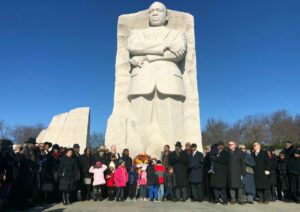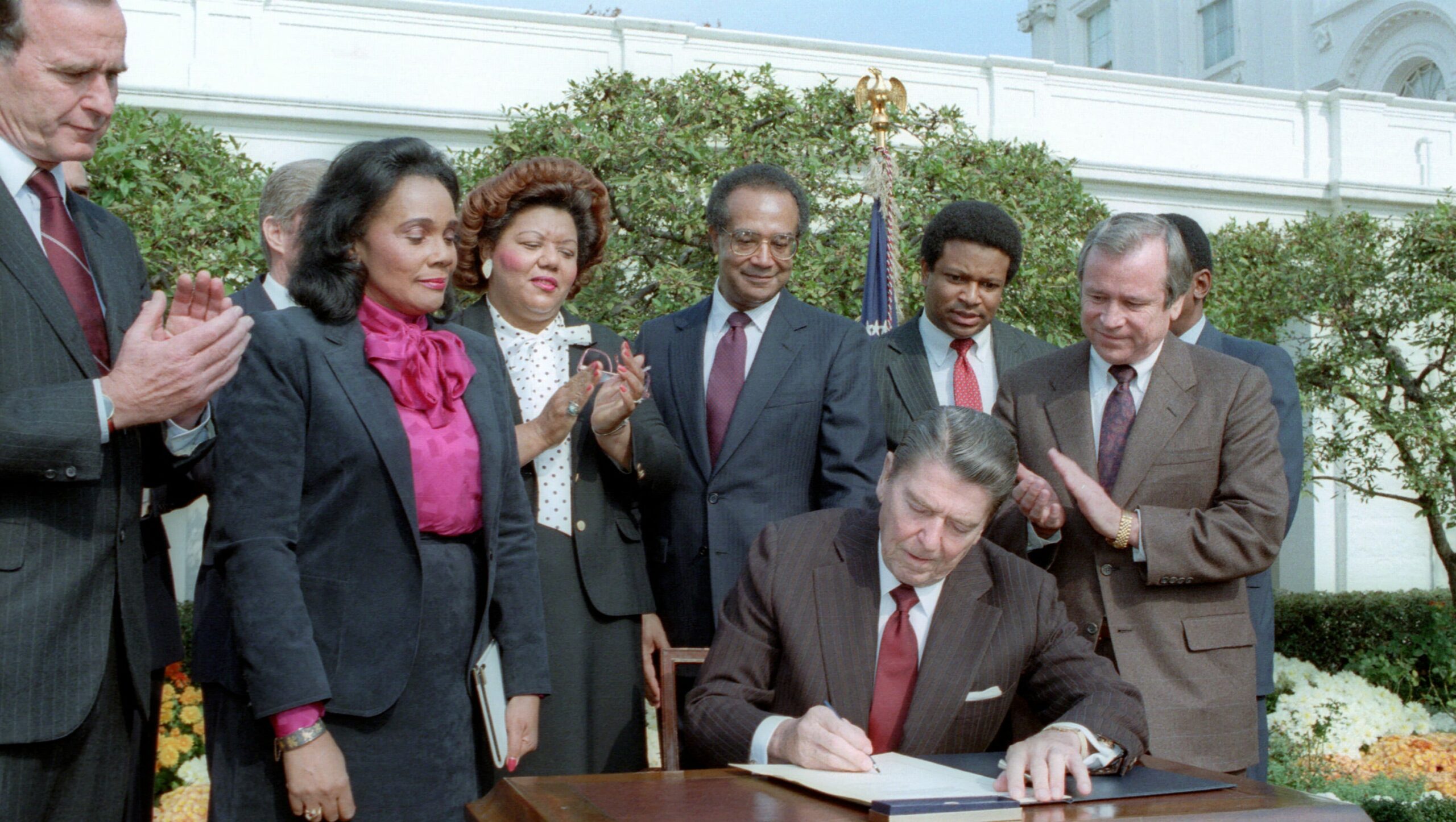Congressman John Conyers, a Black Democratic U.S. representative from Michigan, introduced the first legislation to establish the holiday on April 8, 1968, four days after Dr. King was assassinated in Memphis, Tennessee. However, the bill honoring the life and work of the civil and human rights activist and Nobel laureate fell five votes short of the number needed for Congress to move forward. Congressional conservatives argued that it was unheard of to celebrate a private person who had never held public office with such an honor. Others argued that the federal government could not afford another annual paid holiday for federal employees, and a few suggested that King was not worthy of such a national honor because of his affiliation with communist individuals and organizations.
Dr. King received a Bachelor of Arts in sociology from Morehouse College in Atlanta in 1948, and three years later he received a Bachelor of Divinity from Crozer Theological Seminary in Chester, Pennsylvania. In 1955, he earned a Ph.D. from Boston University. He first gained national attention in 1956 when he was the 27-year-old minister of Dexter Avenue Baptist Church in Montgomery, Alabama. Dr. King became the public face of the Montgomery Bus Boycott sparked by the defiant refusal of Rosa Parks to accept racially segregated seating on a Montgomery city bus.

Dr. King’s fame was enhanced when at the March on Washington in 1963, he gave the keynote address titled “I have a Dream” before a live audience of 250,000 at the Lincoln Memorial, as well as a larger international television audience of millions. In 1964, King won the Nobel Peace Prize for his front-line work opposing racial inequality through nonviolent resistance. One year later, in 1965, King spearheaded the organizing of two Selma-to-Montgomery marches. Dr. King traveled thousands of miles; he lectured and preached more than 2,500 times, protesting and providing a coalition of conscience against injustice and racial abuse. In addition, he penned five books, including Stride Toward Freedom (1958) and Where Do We Go From Here: Chaos or Community (1968), and a plethora of articles that appeared in journals around the world.
Dr. Martin Luther King, Jr. had a seismic impact on race relations in the United States and globally. Therefore, President Reagan’s signing of the bill establishing January 20th as the Dr. Martin Luther King Jr. Holiday was a fitting tribute to someone who worked tirelessly to promote racial justice.

